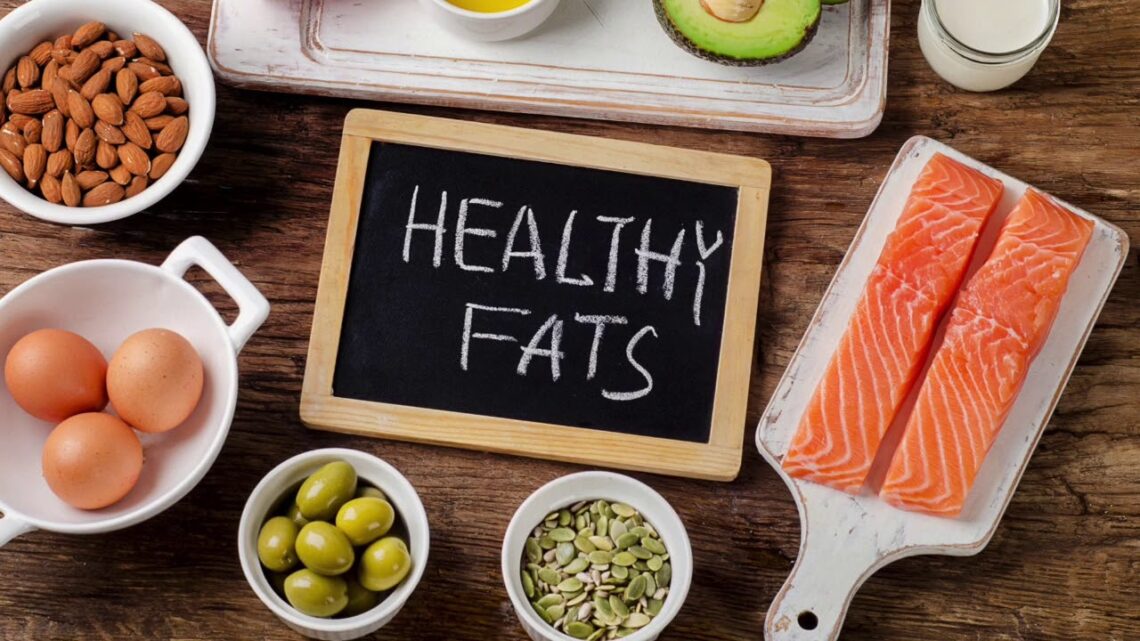
Choosing Healthy Fats: A Guide to Types, 11 Food Tips, and More
Fats play a crucial role in our diets, providing energy, supporting cell growth, and aiding in nutrient absorption. However, not all fats are created equal, and choosing the right kinds of fats is essential for maintaining overall health and well-being. In this comprehensive guide, we’ll explore the different types of fats, provide tips for incorporating healthy fats into your diet, and address common questions about fats and their impact on health.
Understanding Fats
Saturated Fats:
Saturated fats are typically solid at room temperature and are found in animal products such as meat, butter, and cheese, as well as in some plant-based sources like coconut oil and palm oil. While saturated fats have been associated with increased cholesterol levels, recent research suggests that they may not be as harmful as once thought when consumed in moderation.
Monounsaturated Fats
Monounsaturated fats are liquid at room temperature and are found in foods such as olive oil, avocados, nuts, and seeds. These fats are considered heart-healthy and may help reduce LDL (bad) cholesterol levels when used to replace saturated fats in the diet.
Polyunsaturated Fats
Polyunsaturated fats are also liquid at room temperature and include omega-3 and omega-6 fatty acids. Sources of polyunsaturated fats include fatty fish (salmon, mackerel, sardines), flaxseeds, chia seeds, and walnuts. Omega-3 fatty acids are particularly important for brain health and may help reduce inflammation in the body.
Trans Fats
Trans fats are artificial fats created through a process called hydrogenation, which turns liquid vegetable oils into solid fats. Trans fats are found in many processed and fried foods, baked goods, and margarine. They are considered the most harmful type of fat and should be avoided as much as possible.
Benefits of Healthy Fats
Incorporating healthy fats into your diet offers numerous benefits, including:
- Supporting heart health by reducing LDL cholesterol levels and lowering the risk of heart disease.
- Promoting brain health and cognitive function, especially omega-3 fatty acids found in fatty fish and nuts.
- Providing a concentrated source of energy for endurance and physical activity.
- Enhancing the absorption of fat-soluble vitamins A, D, E, and K.
- Supporting hormone production and regulation.
Tips for Choosing Healthy Fats
Prioritize Whole Food Sources
Choose whole food sources of fats such as avocados, nuts, seeds, fatty fish, olives, and coconut rather than processed foods containing trans fats or unhealthy vegetable oils.
Opt for Unrefined Oils
Choose unrefined or minimally processed oils such as extra virgin olive oil, avocado oil, and coconut oil, which retain more nutrients and flavor compared to refined oils.
Limit Processed Foods
Minimize consumption of processed foods such as fried foods, packaged snacks, and baked goods, which often contain unhealthy fats, including trans fats and refined vegetable oils.
Read Labels
Check food labels for hidden sources of trans fats and unhealthy oils such as hydrogenated or partially hydrogenated oils, soybean oil, corn oil, and palm oil.
Use Cooking Methods Wisely
Opt for cooking methods that preserve the integrity of healthy fats, such as baking, steaming, grilling, and sautéing, rather than deep-frying or pan-frying in excessive amounts of oil.
Balance Omega-3 and Omega-6 Fatty Acids
Maintain a balanced ratio of omega-3 to omega-6 fatty acids by consuming a variety of foods rich in both types of fats. Focus on increasing omega-3 sources while moderating omega-6 intake from processed and refined oils.
Practice Moderation
While healthy fats offer numerous health benefits, it’s essential to consume them in moderation as part of a balanced diet. Pay attention to portion sizes and total calorie intake, especially if you’re trying to manage weight.
Consider Dietary Preferences and Restrictions
Choose fats that align with your dietary preferences and restrictions, whether you follow a vegetarian, vegan, Paleo, or gluten-free diet. There are plenty of plant-based sources of healthy fats available for those with specific dietary needs.
Experiment with Flavorful Options
Explore different types of healthy fats to add variety and flavor to your meals. Try using avocado in place of mayonnaise, drizzling olive oil over salads, or incorporating nuts and seeds into your snacks and meals.
Be Mindful of Heat Sensitivity
Some oils have lower smoke points and are more prone to oxidation at high temperatures. Use oils with higher smoke points, such as avocado oil or coconut oil, for high-heat cooking, and save delicate oils like extra virgin olive oil for dressings and low-heat cooking.
Focus on Quality
Invest in high-quality fats and oils from reputable sources to ensure purity, freshness, and optimal nutrient content. Look for organic, cold-pressed, and minimally processed products whenever possible.
FAQs
Are all fats bad for you?
No, not all fats are bad for you. Healthy fats, such as monounsaturated and polyunsaturated fats found in foods like avocados, nuts, seeds, and fatty fish, are essential for overall health and well-being.
How much fat should I eat per day?
The recommended daily intake of fat varies depending on individual factors such as age, sex, activity level, and overall health goals. However, most dietary guidelines suggest that fats should make up about 20-35% of total daily calories.
Can I lose weight by eating fats?
Despite their calorie density, healthy fats can be part of a balanced diet for weight loss when consumed in moderation. Fats help keep you feeling full and satisfied, which can prevent overeating and promote weight loss when combined with a calorie-controlled diet and regular physical activity.
Are saturated fats bad for your health?
While saturated fats have been associated with increased LDL cholesterol levels, recent research suggests that they may not be as harmful as once thought when consumed in moderation as part of a balanced diet. It’s essential to prioritize whole food sources of saturated fats and limit intake of processed and fried foods.
Should I avoid all trans fats?
Yes, trans fats are considered the most harmful type of fat and should be avoided as much as possible. Trans fats have been linked to an increased risk of heart disease, stroke, and other health problems. Check food labels for hidden sources of trans fats and choose products made with healthier fats instead.
Can I eat fat if I have high cholesterol?
If you have high cholesterol or other risk factors for heart disease, it’s essential to choose heart-healthy fats and limit saturated and trans fats in your diet. Focus on incorporating monounsaturated and polyunsaturated fats from sources like olive oil, nuts, seeds, and fatty fish to help manage cholesterol levels and support heart health.
Are there any side effects of eating too much fat?
Consuming too much fat, especially unhealthy fats like trans fats and excessive saturated fats, can lead to weight gain, elevated cholesterol levels, and an increased risk of heart disease and other health problems. It’s essential to consume fats in moderation as part of a balanced diet to maintain overall health and well-being.
Conclusion
Choosing healthy fats is essential for supporting overall health and well-being. By understanding the different types of fats and incorporating nutritious sources of fats into your diet, you can enjoy numerous health benefits, including improved heart health, brain function, and nutrient absorption. Remember to prioritize whole, unprocessed foods and limit intake of processed and fried foods containing unhealthy fats. With mindful choices and moderation, you can make fats a delicious and nourishing part of your diet.
- The Dangers Of Gaslighting In Toxic Relationships - June 1, 2025
- Neck Line Filler Treatment Near Felbridge, Surrey - May 31, 2025
- How To Navigate Relationships When Identifying As Demigender - May 29, 2025
